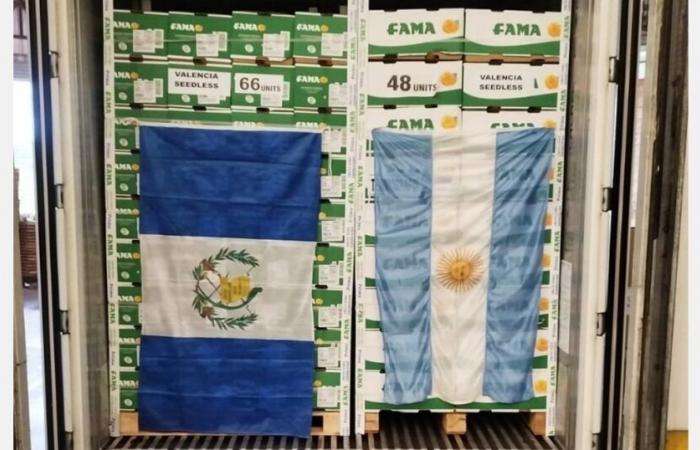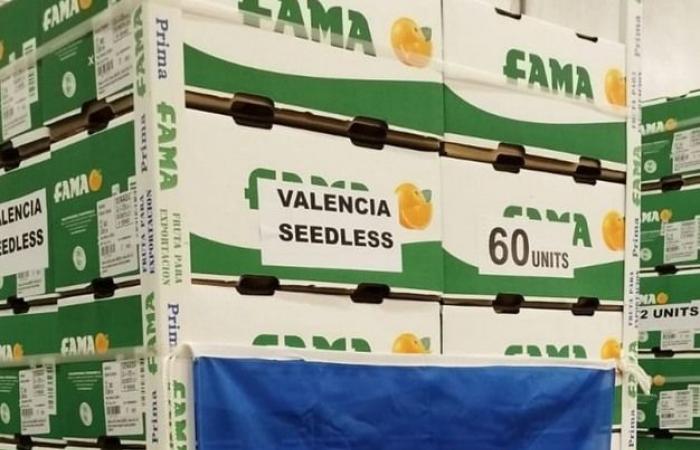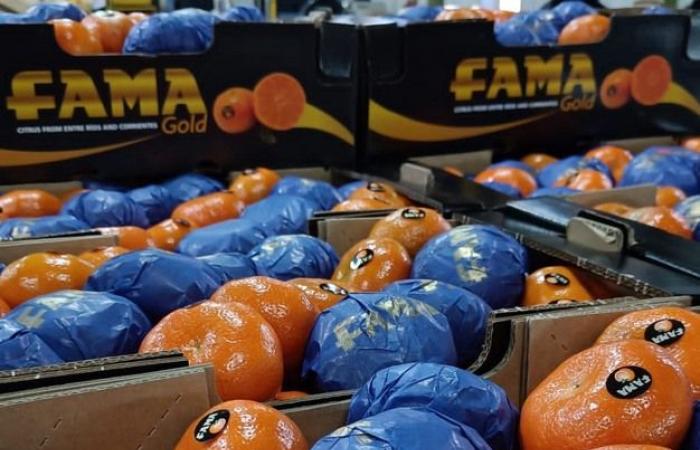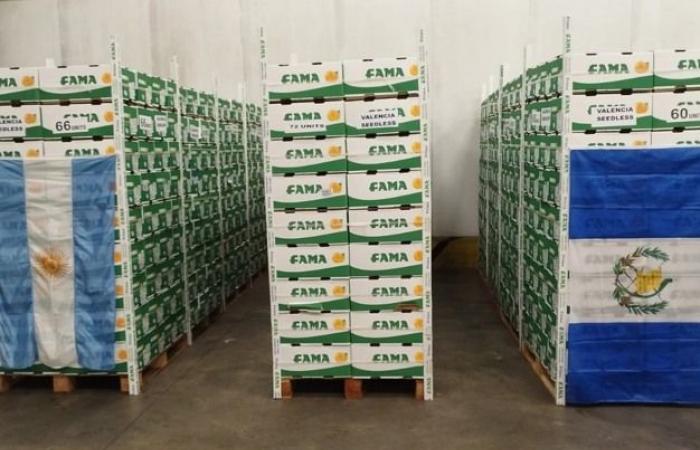The arrival of citrus fruits from Egypt on the markets means that suppliers from the southern hemisphere, such as Argentina, must withdraw, as they cannot compete on price. Nahuel Lavino, export sales manager at Fama, an Argentinian citrus exporter and importer, says: “Our season ended well. We exported more than 10,000 tonnes, which is not bad if We consider that our volumes are decreasing from year to year.”
“In Argentina we can do nothing about the drop in citrus prices in Egypt”
Guatemala has opened up to Argentine citrus for the 2024 season, with FAMA being the first Argentine exporter to ship to this destination.
“The packing station can do a lot more, so we hope to slowly return to those years! We stopped exports about two weeks ago…once Egypt starts, there’s nothing we can do about it their price, then late oranges are stored in cold storage for national consumption.
Argentina’s citrus exports to the European Union remain a challenge for the South American country, due to the restrictions imposed. “We ship a few fruits to the EU each year, but in very small volumes due to the restrictions the EU places on us. Our main markets were the UK, Russia, Canada and Brazil, followed, in a to a lesser extent, by Singapore, the EU, the Philippines, Indonesia and Uzbekistan Argentina is very limited in the markets to which it can export fresh citrus fruits. the chance to open a new market, Guatemala, where our company, FAMA, was the first Argentine exporter to ship products to this destination,” explains Mr. Lavino.
The EU-Mercosur agreement
The EU-Mercosur deal appears to be good news for South American exporters, but Lavino believes the citrus industry is not ready to see the benefits. “Regarding the new changes between Mercosur and the EU, it seems that some restrictions will be lifted in the future for certain products, but for oranges and tangerines they say it is in 7 to 10 years Unfortunately.
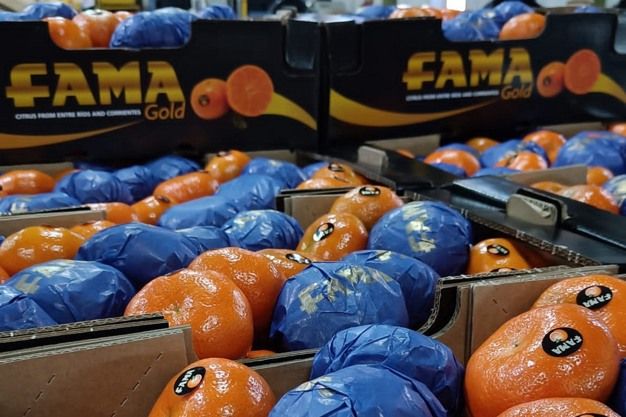
Lots of tangerine exports
Many countries exported more mandarins than before, leading to lower prices. “It was a season with much more volume of mandarins, where most exporting countries shipped more than in previous seasons, especially in markets where we are more present. This surplus of exported mandarins, coupled with a similar demand on the market, caused the prices of mandarins to fall. In Canada, for example, there were 11% more mandarins imported this season compared to 2023, in Russia 16% more and in Asia. Southeast almost 40% more! All this, combined with a dead local market, the huge increase in costs in the country and the fall in export prices, has not helped the producers at all. premises in Argentina.”
The economic reforms of Argentine President Javier Milei also have a direct impact on ordinary people. He introduced several cost-cutting measures, including the reduction or elimination of a series of subsidies such as those granted to fuels, in an attempt to limit state spending. These measures began to stabilize the Argentine currency, the peso. Last year, strict exchange controls and limits were imposed, impacting international trade and exports. This year, the situation has improved a little, comments Mr. Lavino.
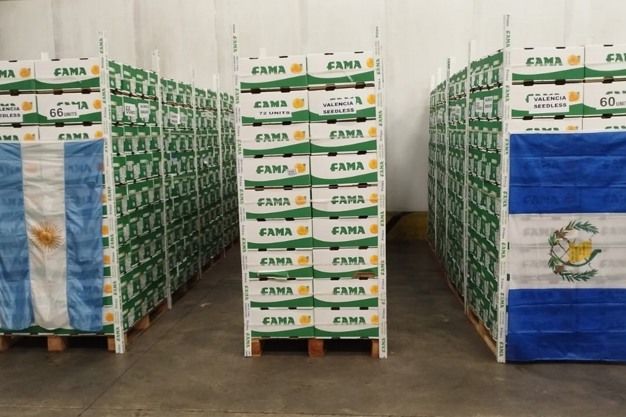
One of the positives for the citrus industry worldwide, including Argentina, is the stronger demand, especially for oranges, from the juice industry, due to the shortage in Brazil. “As for oranges, it’s a completely different story, the volume has been high and so has the demand. Demand from Brazil has been strong due to its reduced production, especially for the large sizes, the category 1 and the juice industry Unfortunately, Argentine exports to Brazil are also severely limited due to the presence of certain parasites. Indeed, many individuals and small packaging companies have found other solutions which. do not require any certification, sorting, packaging or no controls, and shipped huge volumes without any controls.
For more information:
Nahuel Lavino
Fama
Tel: +34 636 497 142
[email protected]
www.citrusfama.com.ar

